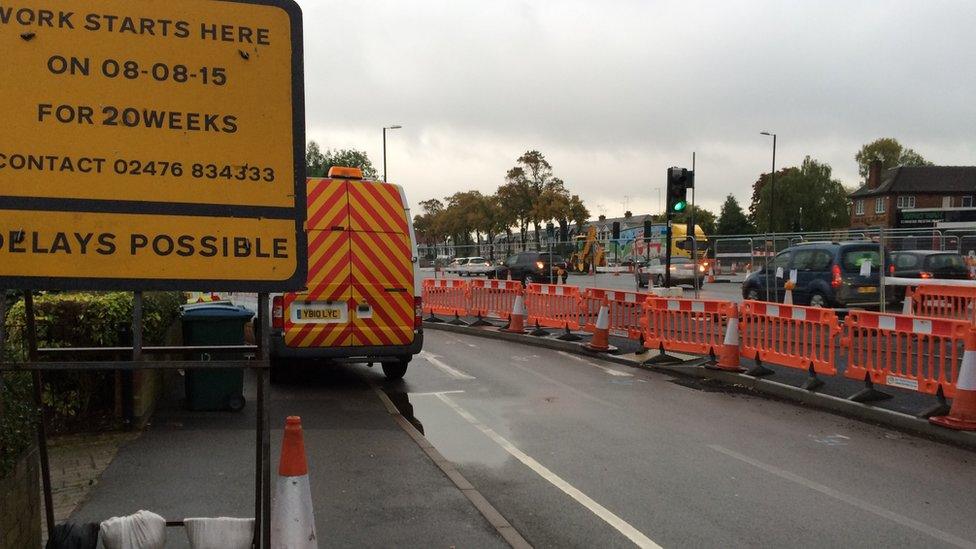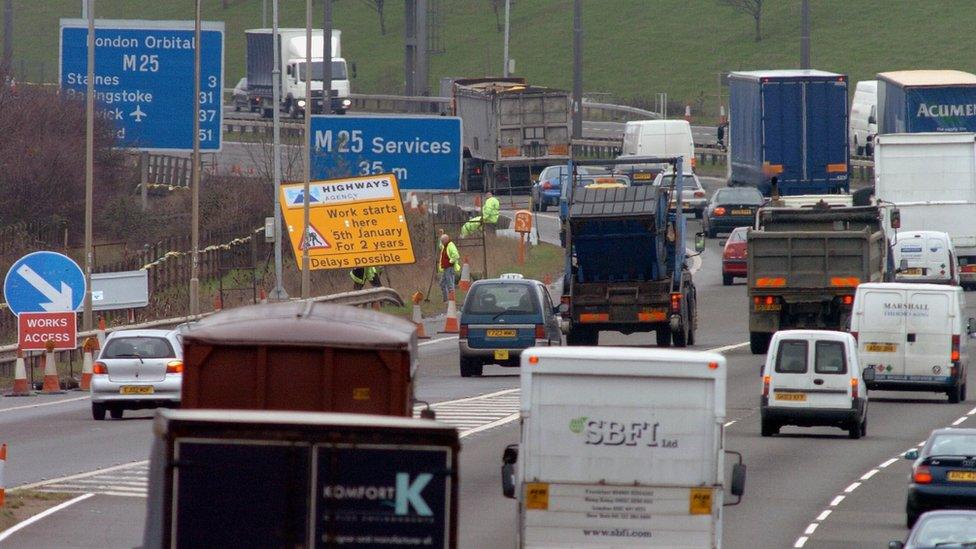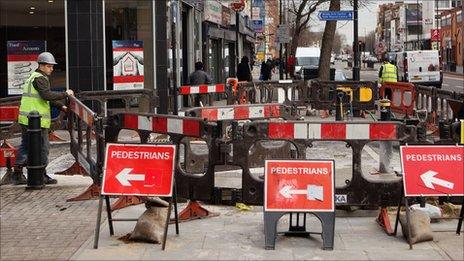Daily charge for utility firms 'would cut roadwork delays', say councils
- Published
- comments

Councils should be given more powers to charge utility companies for the time they spend digging up busy roads, the Local Government Association has said.
It called on the government to grant all councils the power to introduce a daily rate for companies, in an effort to reduce road delays.
Currently only authorities in London and Kent can do so without having to first get government approval.
The government said it was "determined" to improve journeys and cut congestion.
Most councils currently have to receive permission from the secretary of state for transport before being able to introduce so-called lane rental schemes.
The LGA - which represents more than 370 councils in England and Wales - said the current process was "cumbersome and bureaucratic".
Making it easier to charge utility companies would give them an added incentive to complete work as quickly as possible, it added.
'Time-consuming'
LGA transport spokesman Peter Box said councils were being "hamstrung" by a lack of powers.
Mr Box said there was a need for "robust and decisive action".
"Councils know their areas best and should be able to make decisions about traffic locally," he said.
"This means they need the option of being able to introduce lane rental schemes without secretary of state approval, which is time-consuming."
The money generated through the charges could then be used to fund measures aimed at reducing future roadwork problems, he suggested.
The LGA said the scheme in London has been a major success, significantly reducing levels of severe disruption caused by roadworks.
It estimates councils spend nearly a fifth of their maintenance budgets - approximately £220m - on tackling poorly-executed utility roadworks.
A Department for Transport spokeswoman said: "We are determined to deliver better journeys for drivers and cut congestion.
"We commissioned a report evaluating existing lane rental schemes in Kent and London, external, which was published earlier this year.
"Work to formulate options on potential future schemes is ongoing and at an early stage."
- Published27 January 2016

- Published22 September 2015

- Published20 June 2014

- Published11 June 2011
